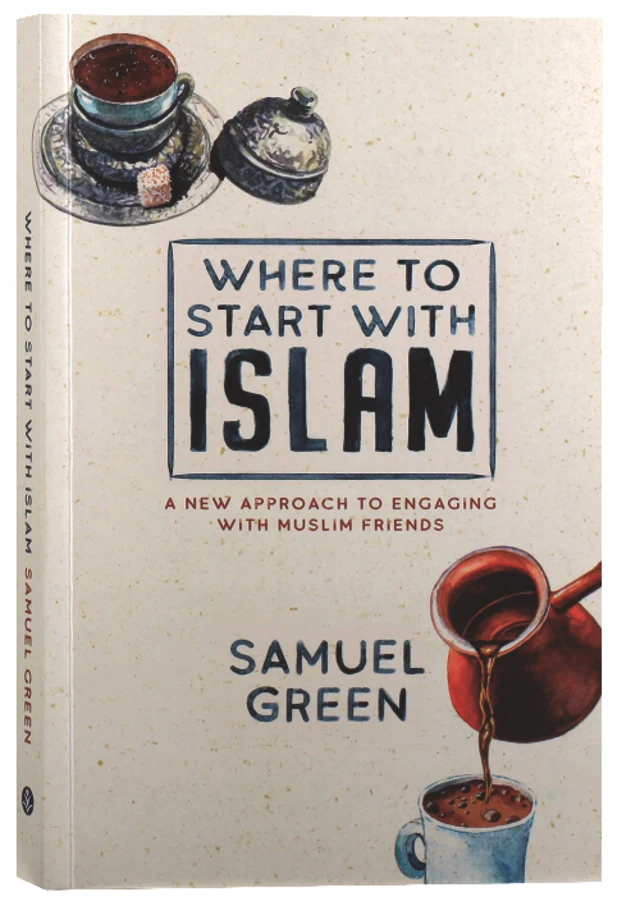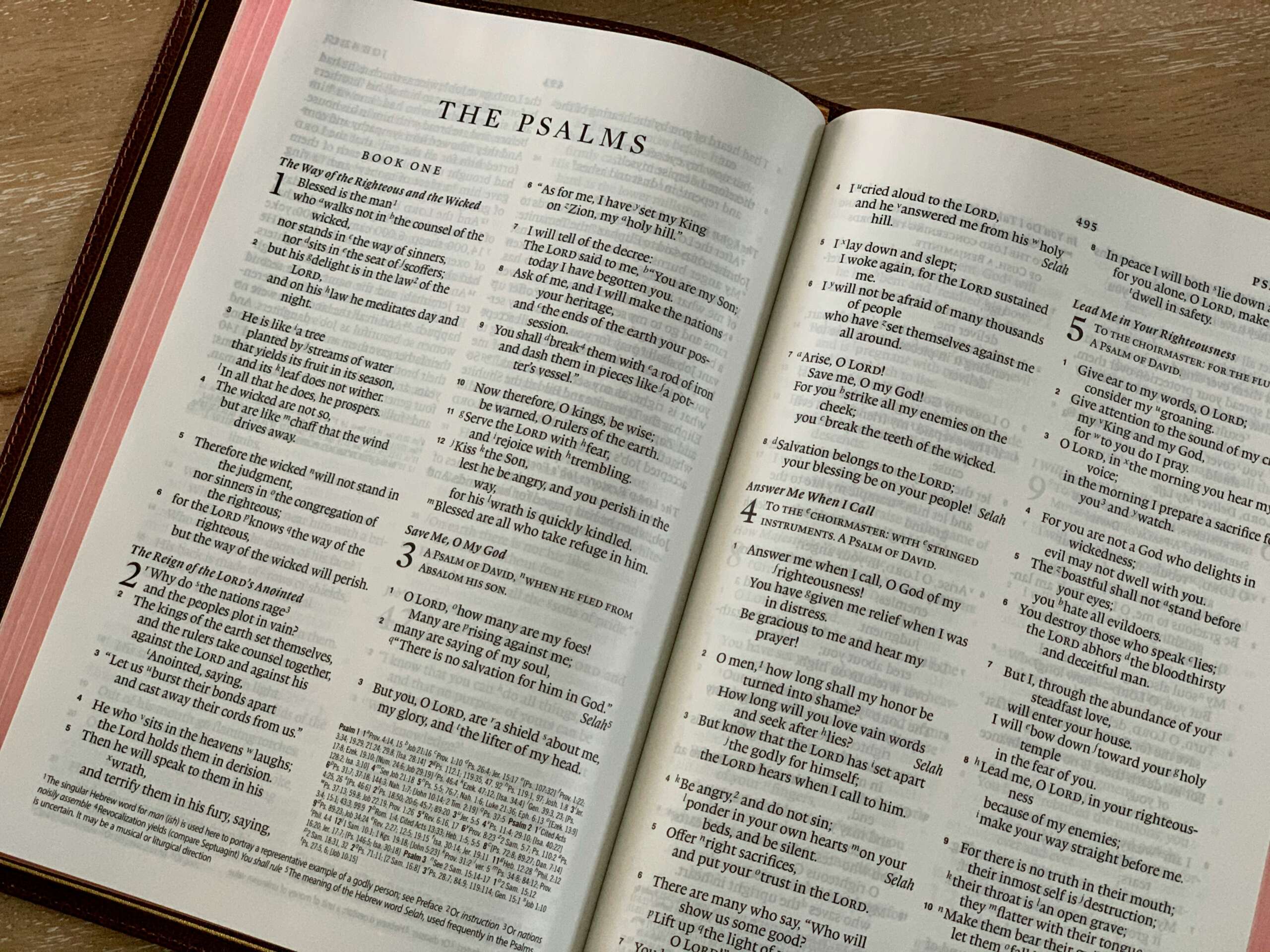Samuel Green became a Christian at the University of New South Wales in the mid-1980s, and soon began to share the gospel.
Having left university and started working, Green found himself conversing more and more with Muslims.
The conversations were confronting. “They were very ready to talk to me,” he recalls, “in a way that I wasn’t ready to talk to them.”
Having learned the gospel and happy to rely on it, Green found himself helpless to answer the questions Muslims asked.
First, a Muslim man told Green that the Christian church had suppressed the Gospel of Barnabas, and that in it, Jesus foretold the coming of Islam’s prophet Muhammed. Having never heard of the Gospel of Barnabas, Green had nothing to say.
If you were faced with that assertion, how would you respond?
The man hadn’t proven that the Church suppressed an authentic gospel nor that Christian Scripture foretells Muhammed. In fact, after researching the topic, Green wrote an article that convinced the Muslim man that the Gospel of Barnabas was not genuine.
What this man had proven is that Christians – especially young ones – are vulnerable to the incisive questions that Muslims have a habit of asking.
Not what, but when
It is no coincidence that Muslims often ask Christians tough questions. Unlike adherents to other religions, says Green, “[Muslims] don’t want you to tell them what Christianity is – they want to tell you what Christianity is.”
The key to understanding this unique dynamic is not understanding what Muslims believe but when they came to believe it.
Muhammed died in AD632, almost exactly 600 years after the death and resurrection of Jesus. “The world around Muhammed was Christianised,” Green explains, and the Islamic religion has always been inextricably entangled with its original Christian context.
But of course, because of when the Islamic faith arose, the relationship is not mutual.
“You can be a mature Christian and know nothing about Islam. You cannot be a mature Muslim and not know how to refute Christianity.” – Samuel Green
A common misconception
Books on world religions and apologetics courses often teach that the core of Islam is the ‘five pillars’. But Green notes that these pillars (profession of faith, prayer, charity, fasting and pilgrimage) are minor elements in the Qur’an.
“When a Christian talks to a Muslim,” he explains, “the Muslim does not say, ‘Let me tell you the five pillars.’ I’ve never had a Muslim say that to me.”
Refuting Christian theology is built into a Muslim’s spiritual DNA.
In fact, the Qur’an is much more comprehensive in refuting Christian doctrines than in setting out the five pillars. The Qur’an specifically denies the Christian doctrines of the cross, the Trinity, the incarnation, divine fatherhood and the sonship both of Jesus and of believers.
Refuting Christian theology is built into a Muslim’s spiritual DNA. As Green puts it, “You can be a mature Christian and know nothing about Islam. You cannot be a mature Muslim and not know how to refute Christianity.”
The door swings both ways
While Christians might naturally be intimidated by a religion that trains its members to discredit our doctrines, Green notes enthusiastically that this apparent disadvantage is also an opportunity.
“The door swings both ways,” Green explains, “because Muslims are meant to learn about Christianity. Just think about that!” This acquaintance gives Christians an easy and effective way to initiate conversations with Muslims about our faith.

Where to Start With Islam, by Samuel Green
This realisation was “the big shift” that moved him to write Where to Start with Islam, a short guide to engaging with Muslim friends without memorising complex arguments or examining the intricacies of the Islamic faith. When Green shared this perspective with other Christians, they overwhelmingly told him they suddenly understood many things that Muslims had said to them.
In the end, when sharing the gospel with a Muslim, Green argues, the best place to start is right in our wheelhouse.
Disarming questions
Green’s strategy couldn’t be simpler. All you need to remember are two short questions.
The first is ‘What have you heard about Christianity?’
“It’s a beautiful question,” Green observes, “because it’s not aggressive.” Rather than starting with something confrontational, start by asking what Islam has taught your friend about Christianity.
The response will tell you a lot about the Muslim’s perspective and the conversation’s potential obstacles. Some will say the Bible is corrupt and Jesus never died on the cross; others will say they know nothing. One told Green that he had been instructed not to speak with Christians (but stuck around for the free food and ended up reading the Bible for six weeks).
The point is not to answer accusations or correct misunderstandings. The point is to listen and spark conversation, leading to your second question: ‘Can I show you just one thing about Christianity?’
You believe in Moses. Great! Here’s the law of Moses.
Our best-kept secret
“The first Bible study you have with a Muslim,” Green explains, “is the table of contents.
“The reason Muslims feel they can correct us,” he goes on, “is that they think they believe in all the prophets.”
Christians tend to take for granted that we regularly read the words of the prophets themselves. But for a Muslim, the Bible’s contents page is often a shock.
You say you believe in Moses. Great! Here’s the law of Moses. You say you believe in David. Great! Here are the Psalms of David.

The Psalms Tim Wildsmith / Unsplash
The implication can then be gently pressed: if you believe in all the prophets, why do you only read what Muhammed says about them when you could read their own words?
The goal of these questions is to make the Bible intriguing, encouraging Muslims to reconsider their preconceptions.
So sharing the gospel with a Muslim doesn’t require the rigorous argumentation of a YouTube debate (although Green has done that very successfully, too). The place to start is with knowledge of your own faith and with two simple questions:
- What have you heard about Christianity?
- Can I show you just one thing about Christianity?
Visit these links for articles, resources, debates, videos, answers and free online training created by Samuel.
Samuel Green works with the Australian Fellowship of Evangelical Students (AFES) as a campus evangelist and the Islamic Engagement Director.


